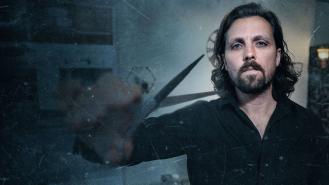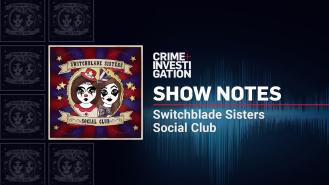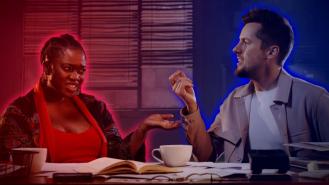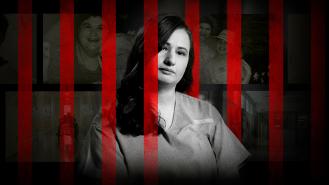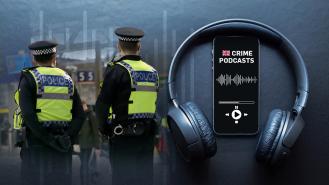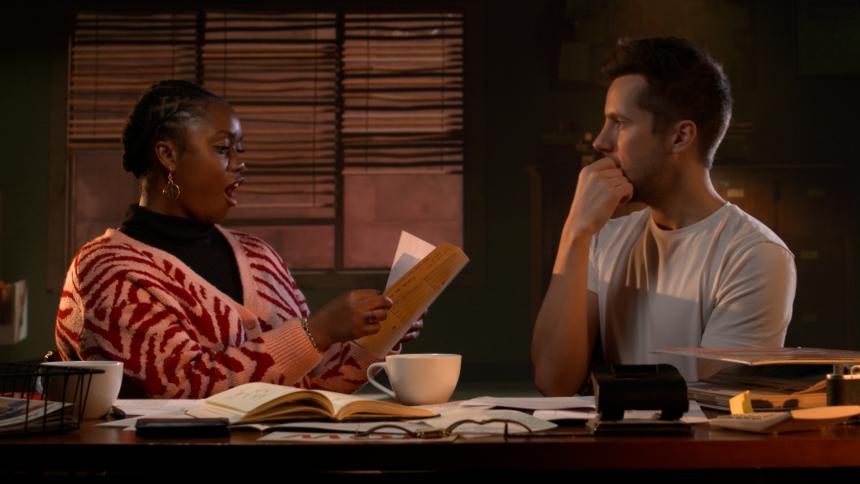
Meet the true crime producer making true crime shows for a modern audience
Rubina Pabani is the Head of Short Form at ITN Productions and is behind some of Crime+Investigation’s most unique digital original shows. In Crime Swipe, true crime aficionados Johnny Nelson and Satema Tarawally dissect separate crimes that have recently hit the headlines and are connected by a curious link.
Meanwhile, Life Behind Bars sees ex-prisoner David Navarro sit down with people who have served time to reveal the truth about the UK prison system. Finally, Courtroom Drama is a podcast series that takes listeners inside the courtroom to learn all about infamous celebrity cases. Host Jackie Adedeji is joined by a lawyer to pore over the most thrilling transcripts.
Crime+Investigation spoke to Rubina about her previous work and find out what the life of a true crime producer is really like.
How did your career as a producer start and what projects have you worked on?
I started my career in television as an intern working in scripted comedy and then moved to do lots of current affairs television. I was then going from production to development across different companies as a freelancer and noticed that my television-watching habits were not the same as everyone else’s. I was watching less television in the conventional sense.
I mainly watched YouTube and that’s where I was finding my interest was going. Luckily, I was working on a BBC Three programme and it was just at that moment when everything went to digital and I got to make lots of digital products. I really got to step up to become a producer-director where I could shoot, direct, cast, edit and distribute. It’s really fun that you can do that in short form, you just get more opportunities.
I started my job at IGN in February 2020 and have been there ever since. In my current role, I’ve been making video series and podcasts, mainly for an online, youth-skewing audience in the factual space.
What exactly does the role of a producer entail when making true crime shows?
Initially, it’s about finding a story that’s compelling and can tell us something new about society. That’s why everyone is so fascinated with true crime because it’s a mirror of who we are as people and also the darker sides of who we are as people. Everyone is always really fascinated with how bad things can get.
Being a producer is about finding everything like people who can shed new light on a case, new evidence that has never been shared before, or coming up with a new format to tell that story.
There are lots of phases and you need to make sure you’re doing all the legal things correctly. That’s like informing any victims of the crime and doing your due diligence as a producer to make sure you’re telling the story respectfully and sensitively.
What initially drew you to working in the true crime space?
Who isn’t compelled by the boom of true crime documentaries and content? Even more, as somebody who is interested in people, I’m interested in why society has become obsessed with true crime and hasn’t seemed to let go.
True crime helps me have a greater understanding of society because there are so many universal themes in true crime that can draw us all together, talking about morally what we think is right or wrong. Looking at a whodunit story or police practice, there are so many interesting things that they can tell us about societal structures and who’s in charge.
Everyone loves a horror film and everyone loves to feel a bit scared and that’s what true crime can give you. For you to hear a bit of reality and to think about your own situation in that same context.
What are some of the biggest challenges and biggest rewards you can get from working on a true crime show?
I find it really difficult if the crime is very gory or if it feels like it’s just so sad that we shouldn’t tell the story. Some stories are just too personal or too graphic that they should be kept private. I really struggle with that because it’s about deciding on what is in the public interest and what isn’t, or when a case becomes a story that everyone should be talking about.
Then if you work on a true crime documentary and you’re shedding light on an issue or you’re looking to seek justice, that can feel really powerful. To be part of something that could change the way an investigation was looked at or even a sentencing feels like the best time to be working in true crime.
How does telling true crime stories in the space of eight-minute episodes differ from full-length documentaries?
It’s something that YouTubers have been nailing for a long time, a new format to tell a true crime story that can be just as gripping. Somebody putting on their makeup and telling you a story is now getting as many views as a Netflix multi-million pound drama series.
You have to condense the story and choose the best bits that you think are the most interesting, but also still give people enough information so they can follow the narrative. You have to really trust that the way you’re telling the story is compelling and interesting, but also factually accurate and making sure you’re saying all the right parts.
What would be your best piece of advice for young producers looking to start working in true crime?
It’s really important to know what makes a good story, so when you’re finding your true crime stories you’re thinking about if there is enough to make it compelling. Also, it’s important to not think about the most salacious headlines to sell a story. Instead, you need to focus on what kind of themes are within the story that could, as I said before, shed new light or do something different.
My other big bit of advice is to check your moral compass regularly as this industry can make you desensitised to how we speak about crime because we deal with it all the time. It’s really important to keep stepping back and remembering that it’s a human being and they had a family. They were a person with a real life, not just another programme or episode for you.
Crime Swipe is streaming now on Crime+Investigation and Courtroom Drama is available wherever you get your podcasts.

